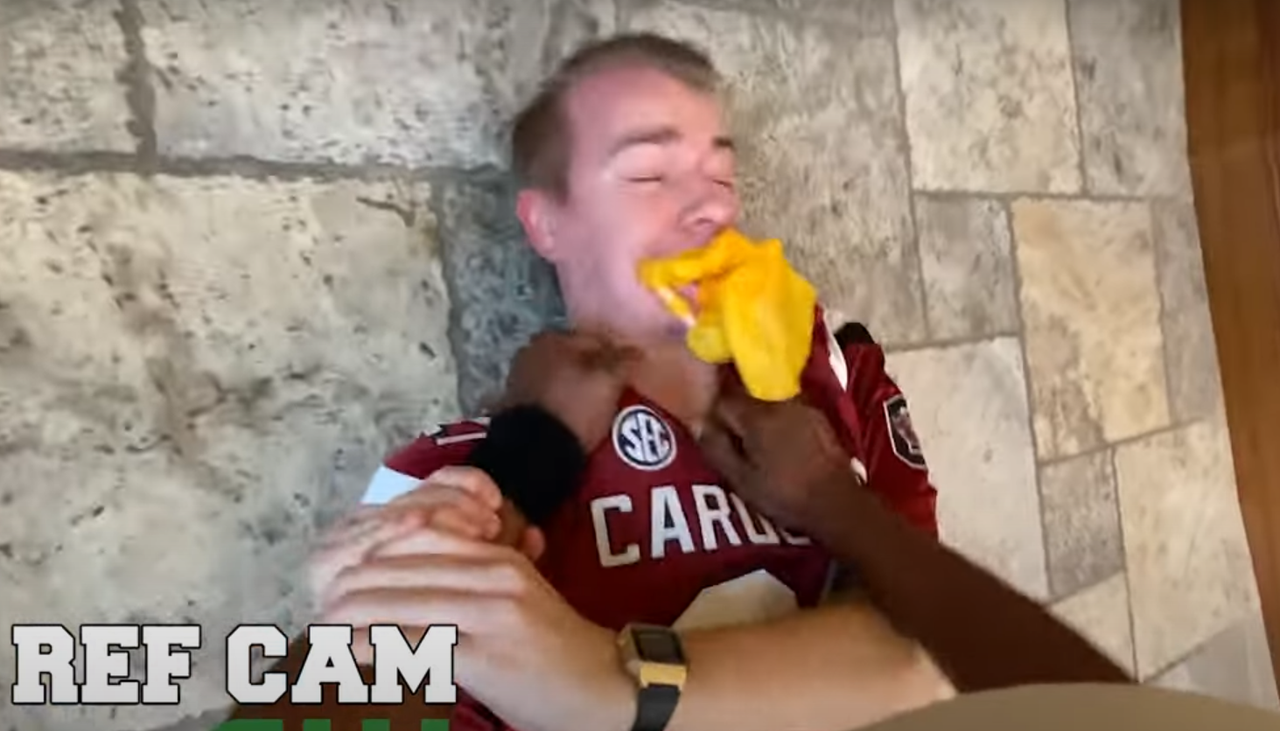- My Forums
- Tiger Rant
- LSU Recruiting
- SEC Rant
- Saints Talk
- Pelicans Talk
- More Sports Board
- Coaching Changes
- Fantasy Sports
- Golf Board
- Soccer Board
- O-T Lounge
- Tech Board
- Home/Garden Board
- Outdoor Board
- Health/Fitness Board
- Movie/TV Board
- Book Board
- Music Board
- Political Talk
- Money Talk
- Fark Board
- Gaming Board
- Travel Board
- Food/Drink Board
- Ticket Exchange
- TD Help Board
Customize My Forums- View All Forums
- Show Left Links
- Topic Sort Options
- Trending Topics
- Recent Topics
- Active Topics
Started By
Message
re: Interesting historical pictures thread (add captions please)
Posted on 1/27/13 at 11:10 pm to Me
Posted on 1/27/13 at 11:10 pm to Me
quote:
I've been trying to find a picture online for awhile now with no luck. I saw it in a Time book of pictures from about 15 years ago. It is a black and white photo of two men in a cafe from about the 1950's time period. Someone is across the street taking their photo and they are looking at him like WTF. Turns out the guy is taking the photo of a woman who jumped off the top of the building and is moments from hitting the ground right in front of them. I'd love to find it because it is really amzing.
This sounds like an interesting photo. I hope someone finds it.
Posted on 1/27/13 at 11:11 pm to MaroonWhite
City of Kijong-dong in North Korea. The town is actually an uninhabited Potemkin village built at great expense in the 1950s in a propaganda effort to encourage South Korean defection and to house the DPRK soldiers manning the extensive network of artillery positions, fortifications and underground marshalling bunkers that abut the border zone.
Posted on 1/27/13 at 11:26 pm to tgr4ever
Mission Control celebrates successful splashdown of Apollo 13
Posted on 1/27/13 at 11:30 pm to Traveler
My hometown:
Rainey Bethea (c. 1909[2] – August 14, 1936) was the last person to be publicly executed in the United States. Bethea, who was a black man, confessed to the rape and murder of a 70-year-old white woman named Lischia Edwards, and after being convicted of her rape, he was publicly hanged in Owensboro, Kentucky. Mistakes in performing the hanging and the surrounding media circus contributed to the end of public executions in the United States.
During the early morning of June 7, 1936, Bethea gained access to the home of Lischia Edwards at 322 East Fifth Street[3] by climbing onto the roof of an outbuilding next door. From there, he jumped onto the roof of the servant’s quarters of Emmett Wells' house, and then walked down a wooden walkway. He climbed over the kitchen roof to Edwards' bedroom window.
After removing a screen from her window, he entered the room, waking her. Bethea then choked Edwards and violently raped her. After she was unconscious, he searched for valuables and stole several of her rings. In the process, he removed his own black celluloid prison ring, but failed to retrieve it. He left the bedroom and hid the stolen jewels in a barn not far from the house.
Under Kentucky law, the grand jury could not convene until June 22, and the prosecutor decided to charge Bethea solely with rape. The reason was, under the statutes then in force, if a punishment of death was given for murder and robbery, it was to be carried out by electrocution at the state penitentiary in Eddyville; however, rape could be punished by public hanging in the county seat where the crime occurred. To avoid a potential legal dilemma as to whether Bethea would be hanged or electrocuted, the prosecutor elected to charge Bethea only with the crime of rape. Bethea was never charged with the remaining crimes of theft, robbery, burglary, or murder. After one hour and forty minutes, the grand jury returned an indictment, charging Bethea with rape.
Although the crime was infamous in the surrounding areas, it came to nationwide attention because of one fact — the sheriff of Daviess County was a woman. Florence Thompson had become sheriff on April 13, 1936 after her husband, Everett, who was elected sheriff in 1933, unexpectedly died of pneumonia on April 10, 1936. As sheriff of the county, it was her duty to hang Bethea.
Among the hundreds of letters that Sheriff Thompson received after it came to public attention she would perform the hanging was one from Arthur L. Hash, a former Louisville police officer, who offered his services free of charge to perform the execution. Thompson quickly decided to accept this offer. He only asked that she not make his name public.
On August 6, 1936, the Governor of Kentucky, Albert Chandler, signed Bethea's execution warrant and set the execution for sunrise on August 14. However, Sheriff Thompson requested the governor to issue a revised death warrant because the original warrant specified that the hanging would take place in the courthouse yard, where the county, at significant expense, had recently planted new shrubs and flowers. Chandler was out-of-state, so Lieutenant Governor of Kentucky Keen Johnson signed a second death warrant, moving the location of the hanging from the courthouse yard to an empty lot near the county garage.
Rainey Bethea's last meal consisted of fried chicken, pork chops, mashed potatoes, pickled cucumbers, cornbread, lemon pie, and ice cream, which he ate at 4:00 p.m. on August 13 in Louisville.
At about 1:00 a.m., Daviess County deputy sheriffs transported Bethea from Louisville to Owensboro. At the jail, Hanna visited Bethea and instructed him to stand on the X that would be marked on the trapdoor.
It was estimated that a crowd of 20,000 people gathered to watch the execution, with thousands coming from out of town. Hash arrived at the site intoxicated, wearing a white suit and a white Panama hat. At this time, no one but he and Thompson knew he would be pulling the trigger.
Bethea left the Daviess County Jail at 5:21 a.m. and walked with two deputies to the scaffold. Within two minutes, he was at the base of the scaffold. Removing his shoes, he put on a new pair of socks. He ascended the steps and stood on the large X as instructed. He made no final statement to the waiting crowd. After Bethea made his final confession to Father Lammers, of the Cathedral of the Assumption in Louisville, the black hood was placed over his head, and three large straps placed around his ankles, thighs, arms and chest.
Hanna placed the noose around Bethea's neck, adjusted it, and then signaled to Hash to pull the trigger. Instead, Hash, who was drunk, did nothing. Hanna shouted at Hash, "Do it!" and a deputy leaned onto the trigger which sprang the trap door. Throughout all of this, the crowd was hushed. Bethea fell eight feet, and his neck was instantly broken. About 14 minutes later, two doctors confirmed Bethea was dead. After the noose was removed, his body was taken to Andrew & Wheatley Funeral Home. He had wanted his body sent to his sister in South Carolina. Instead, he was buried in a pauper's grave at the Elmwood Cemetery in Owensboro.
Many newspapers, having spent considerable sums of money to cover the first execution of a man by a woman, were disappointed and took liberties with their reporting, describing it as a "Roman Holiday," falsely reporting that the crowd rushed the gallows to claim souvenirs, some even falsely reporting Thompson fainted at the base of the scaffold.
On January 17, 1938, William R. Attkisson of the Kentucky State Senate's 38th District (Louisville), introduced Senate Bill 69, calling for the repeal the requirement from Section 1137 that death sentences for the crime of rape be conducted by hanging in the county seat where the crime was committed. Representative Charles W. Anderson, Jr., one of the attorneys who assisted Bethea in his post conviction relief motions, promoted the bill in the Kentucky House of Representatives. After both houses approved the bill on March 12, 1938, Governor Chandler signed it into law, and it became effective on May 30, 1938. Chandler later expressed regret at having approved the repeal, claiming, "Our streets are no longer safe." The last person to be legally hanged in Kentucky was Harold Van Venison, a 33-year-old black singer who was privately hanged in Covington on June 3, 1938.
Rainey Bethea (c. 1909[2] – August 14, 1936) was the last person to be publicly executed in the United States. Bethea, who was a black man, confessed to the rape and murder of a 70-year-old white woman named Lischia Edwards, and after being convicted of her rape, he was publicly hanged in Owensboro, Kentucky. Mistakes in performing the hanging and the surrounding media circus contributed to the end of public executions in the United States.
During the early morning of June 7, 1936, Bethea gained access to the home of Lischia Edwards at 322 East Fifth Street[3] by climbing onto the roof of an outbuilding next door. From there, he jumped onto the roof of the servant’s quarters of Emmett Wells' house, and then walked down a wooden walkway. He climbed over the kitchen roof to Edwards' bedroom window.
After removing a screen from her window, he entered the room, waking her. Bethea then choked Edwards and violently raped her. After she was unconscious, he searched for valuables and stole several of her rings. In the process, he removed his own black celluloid prison ring, but failed to retrieve it. He left the bedroom and hid the stolen jewels in a barn not far from the house.
Under Kentucky law, the grand jury could not convene until June 22, and the prosecutor decided to charge Bethea solely with rape. The reason was, under the statutes then in force, if a punishment of death was given for murder and robbery, it was to be carried out by electrocution at the state penitentiary in Eddyville; however, rape could be punished by public hanging in the county seat where the crime occurred. To avoid a potential legal dilemma as to whether Bethea would be hanged or electrocuted, the prosecutor elected to charge Bethea only with the crime of rape. Bethea was never charged with the remaining crimes of theft, robbery, burglary, or murder. After one hour and forty minutes, the grand jury returned an indictment, charging Bethea with rape.
Although the crime was infamous in the surrounding areas, it came to nationwide attention because of one fact — the sheriff of Daviess County was a woman. Florence Thompson had become sheriff on April 13, 1936 after her husband, Everett, who was elected sheriff in 1933, unexpectedly died of pneumonia on April 10, 1936. As sheriff of the county, it was her duty to hang Bethea.
Among the hundreds of letters that Sheriff Thompson received after it came to public attention she would perform the hanging was one from Arthur L. Hash, a former Louisville police officer, who offered his services free of charge to perform the execution. Thompson quickly decided to accept this offer. He only asked that she not make his name public.
On August 6, 1936, the Governor of Kentucky, Albert Chandler, signed Bethea's execution warrant and set the execution for sunrise on August 14. However, Sheriff Thompson requested the governor to issue a revised death warrant because the original warrant specified that the hanging would take place in the courthouse yard, where the county, at significant expense, had recently planted new shrubs and flowers. Chandler was out-of-state, so Lieutenant Governor of Kentucky Keen Johnson signed a second death warrant, moving the location of the hanging from the courthouse yard to an empty lot near the county garage.
Rainey Bethea's last meal consisted of fried chicken, pork chops, mashed potatoes, pickled cucumbers, cornbread, lemon pie, and ice cream, which he ate at 4:00 p.m. on August 13 in Louisville.
At about 1:00 a.m., Daviess County deputy sheriffs transported Bethea from Louisville to Owensboro. At the jail, Hanna visited Bethea and instructed him to stand on the X that would be marked on the trapdoor.
It was estimated that a crowd of 20,000 people gathered to watch the execution, with thousands coming from out of town. Hash arrived at the site intoxicated, wearing a white suit and a white Panama hat. At this time, no one but he and Thompson knew he would be pulling the trigger.
Bethea left the Daviess County Jail at 5:21 a.m. and walked with two deputies to the scaffold. Within two minutes, he was at the base of the scaffold. Removing his shoes, he put on a new pair of socks. He ascended the steps and stood on the large X as instructed. He made no final statement to the waiting crowd. After Bethea made his final confession to Father Lammers, of the Cathedral of the Assumption in Louisville, the black hood was placed over his head, and three large straps placed around his ankles, thighs, arms and chest.
Hanna placed the noose around Bethea's neck, adjusted it, and then signaled to Hash to pull the trigger. Instead, Hash, who was drunk, did nothing. Hanna shouted at Hash, "Do it!" and a deputy leaned onto the trigger which sprang the trap door. Throughout all of this, the crowd was hushed. Bethea fell eight feet, and his neck was instantly broken. About 14 minutes later, two doctors confirmed Bethea was dead. After the noose was removed, his body was taken to Andrew & Wheatley Funeral Home. He had wanted his body sent to his sister in South Carolina. Instead, he was buried in a pauper's grave at the Elmwood Cemetery in Owensboro.
Many newspapers, having spent considerable sums of money to cover the first execution of a man by a woman, were disappointed and took liberties with their reporting, describing it as a "Roman Holiday," falsely reporting that the crowd rushed the gallows to claim souvenirs, some even falsely reporting Thompson fainted at the base of the scaffold.
On January 17, 1938, William R. Attkisson of the Kentucky State Senate's 38th District (Louisville), introduced Senate Bill 69, calling for the repeal the requirement from Section 1137 that death sentences for the crime of rape be conducted by hanging in the county seat where the crime was committed. Representative Charles W. Anderson, Jr., one of the attorneys who assisted Bethea in his post conviction relief motions, promoted the bill in the Kentucky House of Representatives. After both houses approved the bill on March 12, 1938, Governor Chandler signed it into law, and it became effective on May 30, 1938. Chandler later expressed regret at having approved the repeal, claiming, "Our streets are no longer safe." The last person to be legally hanged in Kentucky was Harold Van Venison, a 33-year-old black singer who was privately hanged in Covington on June 3, 1938.
Posted on 1/27/13 at 11:43 pm to Tchefuncte Tiger
quote:
quote:
BUT if this pic is real and that is his wife, it sure looks like he married a "mixed woman".
I thought the same thing.
Maybe he married a Melungeon?
Posted on 1/28/13 at 2:31 am to wegotdatwood
Posted on 1/28/13 at 6:34 am to SomewhereDownInTX
ATLAS 1 (TRESTLE) -- Kirtland AFB. Largest all wood structure in the world.
LINK
This post was edited on 1/28/13 at 6:36 am
Posted on 1/28/13 at 7:33 am to cubsfan5150
Posted on 1/28/13 at 8:05 am to lsewwww
9/11 pic taken by the only person not on earth at that time.
Posted on 1/28/13 at 10:06 am to Duckie
BUMP
President Ford looks at the Word Trade Center Shortly after it's completion 1974
President Ford looks at the Word Trade Center Shortly after it's completion 1974
Posted on 1/28/13 at 11:53 am to Cleanmatt
Raising of the CSS Hunley in 2000 in Charleston, SC. 1st sub ever to sink a military ship when it did so in 1864 in an attempt to find someway to block the Union blockade. Of course it never returned from that mission.
Chose this pic so you can see a portion of the small fleet of boats that went out to see the raising. I was a kid when this happened but I remember seeing lots of Confederate flags that day.

Chose this pic so you can see a portion of the small fleet of boats that went out to see the raising. I was a kid when this happened but I remember seeing lots of Confederate flags that day.
This post was edited on 1/28/13 at 11:56 am
Posted on 1/28/13 at 11:55 am to theGarnetWay
quote:southerners gonna be southerners.
I was a kid when this happened but I remember seeing lots of Confederate flags that day.
Posted on 1/28/13 at 11:57 am to JBeam
82 years ago the first Tomb of The Unknown Soldier was created underneath the Arc de Triomphe in Paris to commemorate all these who died fighting for their country. Since then many countries have created another Tombs of Unknown Soldier to commemorate their soldiers. 28 January 1921
Posted on 1/28/13 at 1:52 pm to Duckie
The golden staircase
Chilkoot Tral (Klondike Gold Rush)
Chilkoot Tral (Klondike Gold Rush)
quote:
Prospectors who chose the Chilkoot were ferried to Dyea by small boat or ferry. Soon, both Skagway and Dyea were bustling tent cities as sensationalist headlines of the gold rush spurred men from across the United States to leave their jobs and families and gain passage up the Inside Passage to Skagway.
As it became apparent that many of the prospectors who chose the Chilkoot simply were not going to survive the arduous terrain and harsh weather, Canada's North-West Mounted Police (now the Royal Canadian Mounted Police) declared that prospectors could only enter Canada if they had at least one ton of gear (enough to supply a prospector for one year. See also: Klondike supply list)
Supply list.
Prospectors ferried the gear from campsites along the trail, slowly moving closer to the headwaters of the Yukon. With all the equipment and supplies being transported, alternative methods, especially those with a little supplemental income, sprouted up. Many prospectors purchased pack animals (although that method was more commonly used on the rival White Pass), and many others paid Tlingit Indians to haul gear on a per-pound rate from campsite to campsite.
Posted on 1/28/13 at 2:31 pm to RogerTheShrubber
I liked the pictures that were "ominous". Basically, photos soon before the big event happened. Also, I enjoyed the JFK photo of the crowd just on the other side of the overpass that would not have known that Kennedy had just been shot.
Popular
Back to top


 0
0











